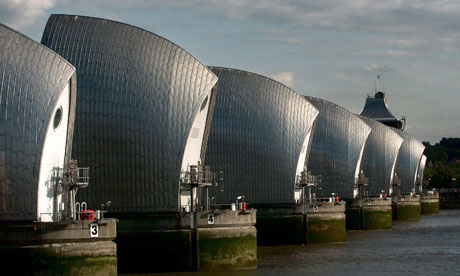
Nature or nurture? Inventiveness relies on both. A vibrant economy built on the export of new technology must have inventive companies and institutions at its heart, but also encourage the people who develop the ideas; we need more engineers. Ideas create wealth, and the intellectual property they develop not only improves lives, but will also power us out of recession.
The world buzzes with talk of microchips, touch screens and processors; but clever, tangible design and engineering are often forgotten. We face challenges of epic proportion – global warming, energy shortages, growing populations. Engineers can develop the solutions that ease them. I'm dizzy hearing about the Silicon Roundabout; hi-tech should not be confined to the digital world – our biggest problems require a response grounded not in the cloud but in tangible form. The allure of digital should not distract us from the bigger challenges.
Apple is an example of the required balance – it combines the digital with the functional. Microchips still require expert materials and precise assembly; Apple still develops ideas and manufactures the well designed hardware.
As we rebalance our economy away from the City towards making things, we must rediscover our inventiveness. The government should not pick winners (a dangerous pastime), but focus on investment in ideas, robust education fostering academic as well as practical skills, and a culture in which inventiveness is encouraged.
Inventive companies must keep inventing, creating jobs in research and development and exporting the resulting technology. George Osborne set the tone in his "budget for making things" – rising exports of hi-tech goods are imperative. Increases in the research and development tax credit, bolstering the enterprise investments scheme and measures for the patent box show he can see the value of inventiveness, and is challenging business to do the same.
But inventiveness depends on inspiring bright young people to develop ideas and use their intelligence in a productive way, like making something work better. Unfortunately, there are not enough young people taking up the challenge in Britain. In 2007 just 6.2% of British graduates read engineering, compared to 12.8% in Germany and 40% in Singapore.
These choices begin at school – with subjects like design and technology. This is practical and creative, but is at risk of being removed from the national curriculum by the government. To be a technology powerhouse we must strengthen our practical education, and combine it more closely with rigorous subjects such as science and maths.
We must direct more young people towards careers in engineering through these subjects – encouraging their natural inventiveness. Too often the education system stifles them. Unlike Edison, they aren't allowed to fail, and then learn from that failure. Engineering is a worthwhile career. But it's no surprise that in the UK the top career choice for girls aged seven to 16 is hairdresser or beautician, while only 1% wanted to work in science and engineering. Scientists and engineers are perceived to be "geeks"; this intelligence isn't revered and it's seen as odd.
Education can encourage engineers, and the government can help business – but to bring it all together we need a culture that celebrates design and invention. Grand schemes like the HS2 project and the proposed airport for the Thames estuary go a long way towards showing young people what is possible. The projects themselves are not the crux of the matter. It's what they represent – large-scale endeavours to help the economy, encourage employment and drive invention.
Over the past six months, my foundation has been challenging young people in 18 countries to develop problem-solving inventions for the James Dyson Award – and on Wednesday we will announce the winner. They have responded with a host of ingenious solutions: from a mop bucket that only dispenses clean water (why do we clean our floors with the same dirty water?) to a device that extracts water from thin air, overcoming the problem of droughts destroying crops (a growing problem as a result of global warming and population growth).
The ideas are inspiring and are a startling sign that ingenuity is alive and well. We will know the winner later, but the important lesson Britain can take from it, even on this scale, is that we face stiff competition – not just in the James Dyson Award, but in the global economy too. Our competitors have good ideas and the talented young people to develop them. We must not become complacent.

